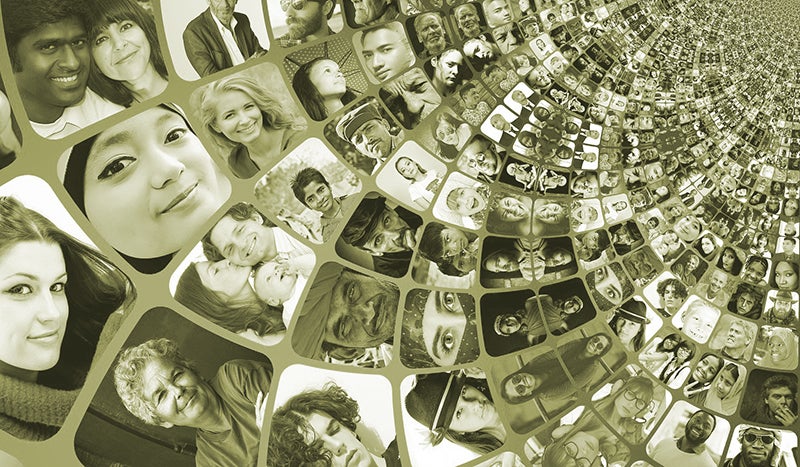How leadership in diversity, equity and inclusion is accelerating across the CU system
New officers across the University of Colorado system are delivering an infusion of talent in the realm of diversity, equity and inclusion (DEI), which CU President Mark Kennedy continues to address with financial support and a call to achieve long-needed progress.
At system administration, Theodosia Cook, the CU system’s first Chief Diversity Officer, marks her first anniversary in the role this month. At the CU Anschutz Medical Campus, Regina Richards, Vice Chancellor of Diversity, Equity, Inclusion and Community Engagement, took on her new role last July. At CU Denver, Antonio Farias just this March was named Vice Chancellor for Diversity, Equity and Inclusion. A search is underway for a new Senior Vice Chancellor for DEI at CU Boulder, while UCCS anticipates launching a search for a permanent DEI lead next month.
“Moving a university system as large and complex as CU forward in an endeavor requires strong functional leadership at both the system and campuses collaborating toward shared goals,” Kennedy said. “It is exciting to see the results already achieved and in our future from the recent addition of strong DEI leaders throughout CU as we together seek to diversify students, faculty and staff; ensure that all feel they belong; and close the equity gap in our graduation rates.”
The presence of higher education professionals in these roles is evidence of a shift away from the idea that DEI leadership can take place organically without the expertise of trained administrators.
“There is a popular notion that diversity is all of our work, and this can be misleading,” Cook said. “We should all care, we should all resist the temptation to deny the lived experiences of historically marginalized groups and we should all raise our voices to acknowledge a more robust and accurate telling of Coloradan, American and global history.
“But we must be clear, those are the tasks that can be done by all of us, whereas DEI leadership at the nexus of organizational development and compliance requires a specialized knowledge of how to analyze and shift systems and power.” Cook elaborated on the topic in this recent podcast.
Richards noted how she and her peers are trained to understand the principles of DEI and the complexity of compliance.
“This is a profession that requires expertise like every other profession there is,” Richards said. “You wouldn’t go to a heart specialist for an ear, nose and throat problem, and it’s the same concept with DEI.”
Farias said culture change within a community requires helping people to change their mindsets.
“That’s where DEI officers come in,” he said. “Our roles are to be catalysts and consultants, to help others see the big picture of why this helps everyone.”
Metrics – for demonstrating progress in greater diversity among the student, faculty and staff populations, and achieving equity and inclusive communities – are crucial, leaders say.
“Everything we do is data-driven with measurable outcomes,” Richards said. “We will not be supported in this work if we don’t use data science to demonstrate impact in these areas.”
Farias agreed that data is key.
“But at the same time, it’s like most places: We’re data rich and analysis poor,” Farias said. “It’s about taking the time to think about, what is this data really telling us? You need the right people around the room, particularly if you’re talking about DEI, to look at the data from different angles.”
Cook said metrics naturally vary based on the given initiative, including the DEI Innovation Fund, established last fall by President Kennedy and the CU Foundation.
“Where we are allocating funds, the metrics are about applying best practices to advance equity on our campuses,” Cook said. “Funds are being applied at the system to develop search advocates throughout the institution to create fair hiring processes that will allow for transparency, consistency and compliance.
“Right now our goal is to increase the knowledge base of those connected to hiring activities and then we hope to shift our tools to track data at every point of the hiring process. But we must first do that by building buy-in into this new model.”
Cook said she is working to gain that buy-in in part by empowering DEI leaders at the campuses, positioning them to be equipped structurally and financially to make policy recommendations, innovate around key processes – and ultimately be respected as the professionals they are.
“This will allow us to make progress,” Cook said. “Because at the beginning of my tenure, the main problem I identified was that DEI leaders were not empowered – so how could we ever make progress, if they weren’t equipped to lead it?”
Richards said she’s excited and optimistic about the campus initiatives underway, which took root last year after students proposed over 87 recommendations for anti-racism solutions.
“By having the support of Chancellor (Don) Elliman, by getting the resources we need, we are going to be able to lay foundational work that will have impact over time,” Richards said.
Farias looks forward to helping enact new policies that will in turn promote new work habits – and personal habits – to get on track.
“I apply my background to this role in a way that brings people together,” Farias said. “If I have any skill, it’s about collaboration and bringing disparate and usually silent groups together to work on fixing problems. With Chancellor (Michelle) Marks at the helm, this is happening across the enterprise, and she has dubbed it ‘radical inclusivity.’”


